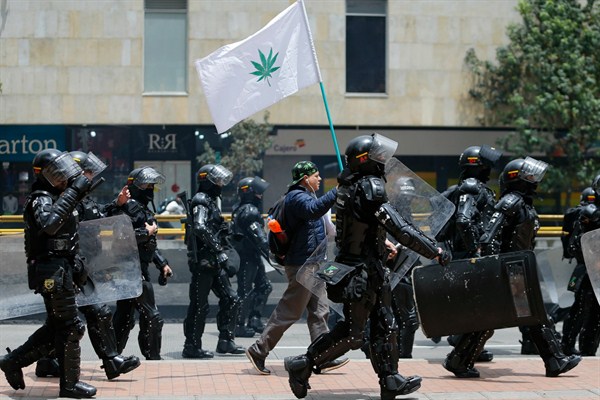Editor’s note: This article is part of an ongoing series about national drug policies in various countries around the world.
While various countries including Canada and South Africa liberalize their drug policies, Colombia is heading in the opposite direction. Earlier this month, President Ivan Duque signed a decree enabling police to search people and confiscate small amounts of drugs. The measure has sparked widespread protests amid concerns that it may violate previous Colombian high court rulings allowing for personal drug possession and consumption in small doses. For more on the context of Duque’s decree and the outlook for the legal challenges against it, WPR spoke via email with Juan Carlos Garzon, director of the Conflict Dynamics and Peace Negotiations Program at the Ideas for Peace Foundation in Bogota.
World Politics Review: What are President Duque’s motivations for cracking down on personal drug use? To what extent does this decree diverge from recent Colombian drug policy?

